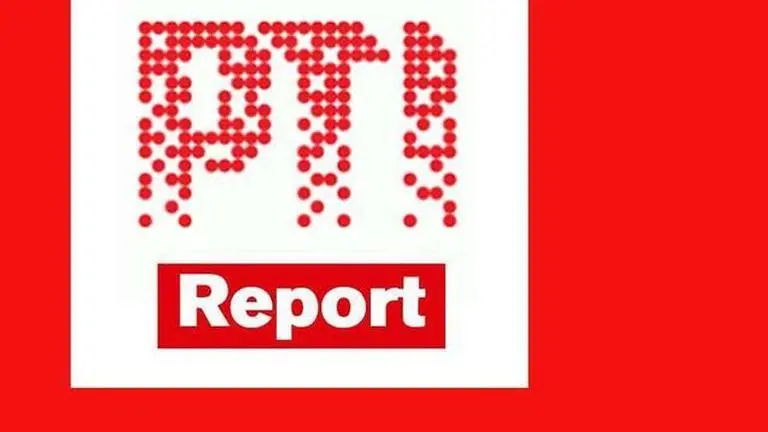Updated 26 January 2020 at 18:05 IST
'Govt honouring awe-inspiring people with Padma awards; dominance of elites gone'
The Narendra Modi government has given the Padma awards, one of the highest civilian honours, to an awe-inspiring set of people handpicked from all corners of the country and segments of the society, officials said on Sunday.
- India News
- 4 min read

The Narendra Modi government has given the Padma awards, one of the highest civilian honours, to an awe-inspiring set of people handpicked from all corners of the country and segments of the society, officials said on Sunday. For the first time in decades East India comes in first, followed by South and the long-running dominance of the elites in Delhi and Mumbai has also been curbed, they said.
The Padma awards are given in three categories -- Padma Vibhushan, Padma Bhushan and Padma Shri -- announced annually on the eve of the Republic Day. The past five years have seen an awe-inspiring set of people recognised and they were handpicked from all corners of the nation, all segments of the society, from every discipline and niche, a government official said.
In the last five years, the government has gone beyond excellence alone, recognising larger impact and selfless service, the official said. The stories of the awardees' struggles, dedication, perseverance and service script the 'story of new India' and they are the true heroes of India, who inspire generations.
Since 2014, each year has seen an eclectic range of selections, historic selection of farmers from across states and disciplines, horticulturists to organic farmers, traditionalists preserving old seeds to progressive ones adopting cutting-edge technology. 'Nari Shakti' (women power) encapsulated in the range of extraordinary women awarded, from farmers to mid-wives, 'Devdasis' to Gandhians, yoga teachers to doctors.
Advertisement
Doctors from beyond the All India Institute Of Medical Sciences (AIIMS) and Delhi, combatting diseases of the common man against all odds, in difficult and inhospitable locations, the official said. Writers across a dizzying breadth of vernacular and local languages - Santhali, Odia, Bhojpuri, Dogri, Assamese, Kashmiri, Kannada, Tamil, Marathi, Urdu, Sanskrit, English, the list does not end.
Artistes across disciplines, styles, geographies and ages, from Marathi and Dalit theatre to Hindustani and Carnatic music, folk to film and devotional, 'Bhakti' to Sufi, Madhubani to Rogan and Kashmiri. Special focus areas like yoga, sanitation, environment have been championed, the official said.
Advertisement
The genius of the East and Northeast has been celebrated, deserving people have been found from all parts of the country, going beyond merely breaking the hegemony of the North and West, to in fact inversing it, another official said. Reflecting the country's growing relevance on the global stage, foreign nationals from across the world have been awarded a special recognition of the deep bonds people all over the world share with India.
Unearthing unsung service and excellence from every nook and corner has been an important part of the awards every year: From the likes of Jadav Payeng, Chewang Norphel and Arunima Singh in 2015 to Simon Oraon and Arunachalam Muruganantham in 2016. The year 2017 saw the list balloon, with the likes of Meenakshi Amma, Daripalli Ramaiah, Girish Bharadwaj and it continued through 2018 with Lakshmikutty, Subhasini Mistry and Sitavva Joddati.
The tradition continued in 2019 with Smita and Ravindra Kolhe, Jamuna Tudu, Daitari Naik, Shyama Prasad Mukherjee and Kamala Pujari. The Padma awards are given to people who silently serve the society at the grassroots, not expecting anything in return, nor any award, reward or recognition, the official said. Nominations for this year's Padma awards had closed on September 15, 2019 and the government of India received more than 46,000 nominations representing an over 20 times increase compared to 2014 (2,200 nominations).
These nominations were received from a record 41,000 unique nominators, from inspired Indians who made the effort to find and champion heroes from amongst themselves, taking the effort to register themselves on the Padma website, fill out detailed questionnaire of their nominee.
This best reflects the paradigm shift that has steadily yet decisively been brought about in the way India's foremost national awards are given - 'Government Awards' have been transformed into 'Peoples Awards'. The Padma awards have been opened up to the people of India and it is now 'your' award, the official said. Common citizens from all corners of the country are now themselves identifying their heroes and this is happening because the nomination process has been made simple and accessible through an online application platform encouraging all to participate.
Lakhs of Indians participated in the online Padma quiz conducted since the 2018 awards. The lucky winners enjoyed a once in a lifetime opportunity of attending the Padma award ceremony in person at the prestigious Darbar Hall in Rashtrapati Bhavan and even interacting with the awardees.
Technology has been a great enabler in making the #PeoplesPadma movement a shining example of 'Jan Bhagidari', a user-friendly interactive website, dashboard and social media campaign has enabled everyone to easily engage with the Padma awardees, the official said.
Published By : Press Trust Of India
Published On: 26 January 2020 at 18:05 IST
